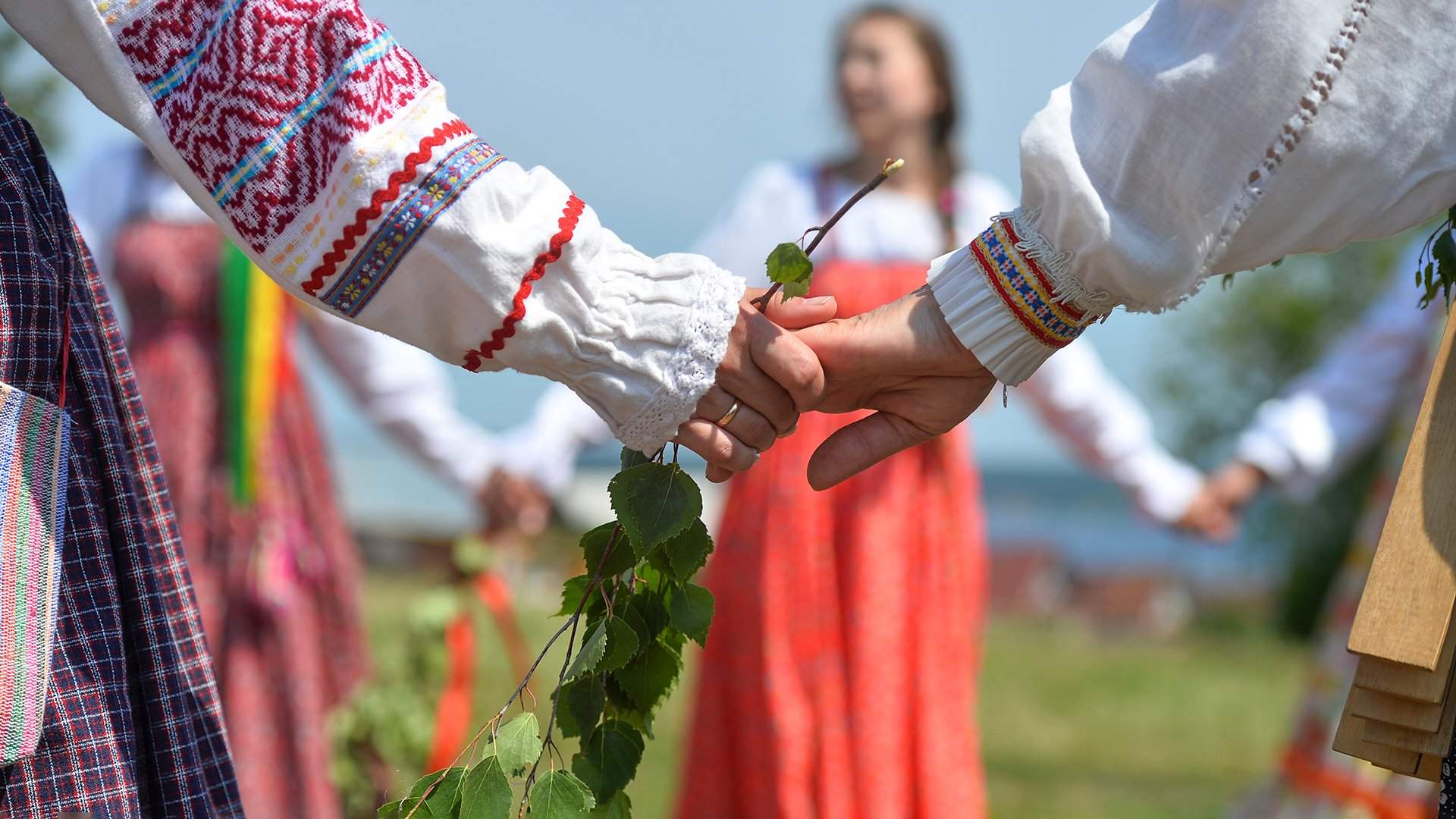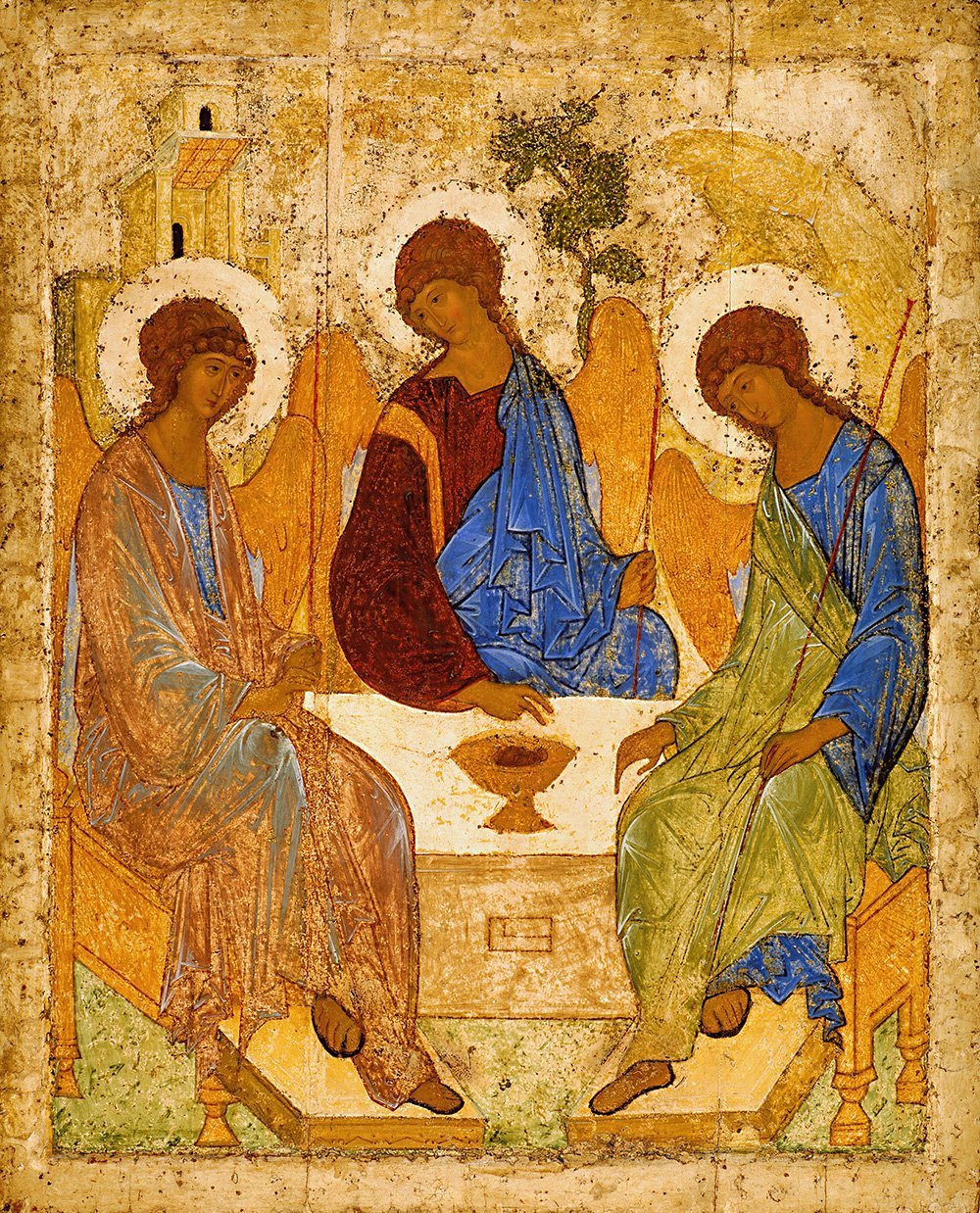Less than a week before Trinity: how to celebrate Pentecost and Spirits Day

Everyone knows the saying "God loves the Trinity," but few people thought that Trinity is one of the main and meaningful holidays for Orthodox Christians after Easter and Christmas. This day is also called the "Birthday of the Church" or Pentecost. How the holiday is celebrated and why the birch tree has become its symbol in Russia — in the Izvestia article.
Holy Trinity — what does the holiday mean, why is it called that?
Holy Trinity is celebrated on the fiftieth day after Easter, the popular name of the holiday is Pentecost. In 2025, Trinity falls on June 8, preceded by Trinity Parents' Saturday on June 7 — Memorial Day of the dead. According to the Bible, during the 40 days after Easter, Jesus periodically appeared before the disciples, and on Whitsunday, the third hypostasis of God, the Holy Spirit, the comforter, was revealed to people-"The Spirit of truth, whom the Father will send in My name."

Having fulfilled them, the apostles gained the gift of healing the sick, prophesying, and speaking in various languages. Each apostle (from the Greek — "messenger") received his destiny and went to preach Christianity and build churches in remote regions — from the Black Sea to Asia Minor. That is why Pentecost is also called the "Birthday of the Church."
The festive icon of this day has been considered for five centuries to be Andrei Rublev's "Old Testament Trinity", which has been located in the Cathedral of Christ the Savior since 2023, as it was returned to the Russian Orthodox Church by decision of Russian President Vladimir Putin.
Dukhov Day — why is it called that?
Immediately after Trinity, Orthodox Christians celebrate the Day of the Holy Spirit or Spirits Day. In 2023, it falls on June 5th. At first, Trinity and the Day of the Spirits coincided, but since the end of the XI century in Russia, the Day of the Holy Spirit began to be celebrated separately. It is believed that in this way the church emphasized the important role of the third hypostasis in order to honor it on an equal basis with God the Father and God the Son. At the same time, Catholics still celebrate Holy Spirit Day on Sunday, the fiftieth day after Easter. In 2023, Catholic Trinity and Spirits Day fall on May 28.
In Orthodoxy, Holy Spirit Day opens the Trinity Week on June 5-11, which is the preparatory week before Peter the Great (Apostolic Lent). There is no strict fasting this week, but in prayer believers thank God and ask for the health of loved ones, help in studies, work and family relationships.
Other church holidays also fall on Trinity Week. So, on June 6, believers will celebrate the Memorial Day of Blessed Xenia of St. Petersburg, and on June 11, on the eve of St. Peter's Fast, St. Luke's Memorial Day. Peter's Fast lasts from June 12 to July 11 and ends with the celebration of the Day of the Apostles Peter and Paul. In 2023, Peter and Paul fall on July 12th.
A white dove is considered a symbol of peace and the Holy Spirit in Christianity. The Bible describes that it was in the form of this bird that the Holy Spirit descended to earth during the baptism of Christ. In some countries, for example, in Slovenia, a figurine of a white dove is still decorated in temples and houses on Whitsunday and Spirits Day.
Why did the birch tree become a symbol of the Trinity
Since time immemorial, there has been a tradition to decorate houses and temples with flowers and greenery on Whitsunday — first of all, birch branches, which are the first to bloom in spring. The tradition has come to us since the Old Testament times, when Moses was given the Ten Commandments. It happened in the spring, when the entire Sinai Mountain was covered with flowering trees. In memory of the event, the temples of Jerusalem were always decorated with fresh greenery on Pentecost.
The habit of decorating houses and temples with greenery has also taken root in Russia. Branches decorate the walls and floors of churches. Then the branches consecrated in the temples are brought home and placed near the icons. "Symbolically, in this way, the soul blooms and turns green after hibernation, because it has been touched by the grace of the Holy Spirit," Archpriest Boris Stark explains in his book "My Whole Life is a Miracle." It is not worth throwing out the consecrated birch after the holiday. The priests suggest spreading branches along the river or burying them in earth and fire in a secluded place.
What can and cannot be done on Whitsunday
On the eve of the holiday, on Trinity Parents' Saturday, believers commemorate deceased relatives, visit cemeteries and put the house in order. The feast of the descent of the Holy Spirit upon the apostles itself is a day of joy. After the solemn liturgy, at which the prayer "To the King of Heaven" is read for the first time after Easter, the faithful return home to the festive table. Giving alms to the poor is encouraged.
It is not customary to be sad on Whitsunday, it is better to avoid quarrels and profanity, and also to maintain moderation in food and drinks. The holiday has always been considered a good time for matchmaking. It was considered a good omen to woo on Trinity Day, and to have a wedding on Pokrov — then the newlyweds were expected to have a happy and strong family life.
What to cook for Whitsunday
On this holiday, it is customary to prepare dishes and pastries with lots of fresh herbs — pies, pancakes. Often, the edges of the pie were braided with a "pigtail" to make a wreath — a symbol of the flowering and joy of nature. So the loaf became one of the iconic dishes of the holiday. The second equally important dish is fish pie. Fish has been depicted in temples and on utensils since the days of Christianity, and today it remains an element of church decoration. Some of the drawings depict three fish having one head in common.: This is how the Holy Trinity was symbolically depicted, emphasizing its indivisibility and at the same time its non-fusion.
Переведено сервисом «Яндекс Переводчик»
